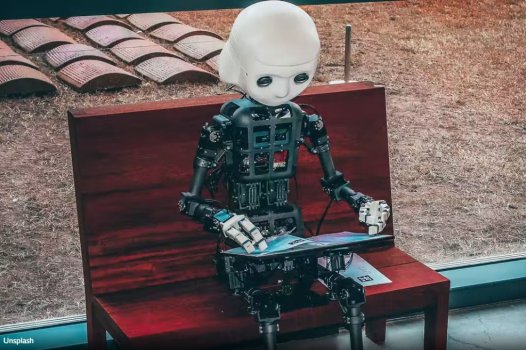AI is still in its infancy because we still don’t fully understand how our brains work – so how far are we from having a human-like AI?
A Google engineer recently claimed one of the company’s LAMda chatbots was ‘sentient’ — meaning it can express thoughts and feelings. Blake Lemoine claimed the chatbot — which was designed to have free-flowing conversations — had conversations with him about complex subjects such as rights and personhood.
He has since been fired on the grounds his claims were “wholly unfounded,” yet this has created such waves (and in some quarters alarms), because the majority of AI that we engage with on a daily basis (knowingly or unknowingly), for example face ID to open your iPhone, isn’t built to act in the same way as a human brain does. So how close are we to a human-like AI?
The truth is nowhere near at all. For now, sentient AI remains in the realms of Netflix’s sci-fi category. But that’s not a bad thing.
We know humans are great at a general set of tasks but even as humans we all have jobs, areas that we specialize in and focus on to become better and better at that one thing. Looking at industry, given the technical difficulties of building AI which mimics the all-encompassing capabilities of a human brain, focus has been placed on building applications of AI technology to solve specific business problems.
Continue reading: https://www.standard.co.uk/tech/cyber-security/what-does-ai-meaning-human-brain-sentient-b1017657.html
A Google engineer recently claimed one of the company’s LAMda chatbots was ‘sentient’ — meaning it can express thoughts and feelings. Blake Lemoine claimed the chatbot — which was designed to have free-flowing conversations — had conversations with him about complex subjects such as rights and personhood.
He has since been fired on the grounds his claims were “wholly unfounded,” yet this has created such waves (and in some quarters alarms), because the majority of AI that we engage with on a daily basis (knowingly or unknowingly), for example face ID to open your iPhone, isn’t built to act in the same way as a human brain does. So how close are we to a human-like AI?
The truth is nowhere near at all. For now, sentient AI remains in the realms of Netflix’s sci-fi category. But that’s not a bad thing.
We know humans are great at a general set of tasks but even as humans we all have jobs, areas that we specialize in and focus on to become better and better at that one thing. Looking at industry, given the technical difficulties of building AI which mimics the all-encompassing capabilities of a human brain, focus has been placed on building applications of AI technology to solve specific business problems.
Continue reading: https://www.standard.co.uk/tech/cyber-security/what-does-ai-meaning-human-brain-sentient-b1017657.html

